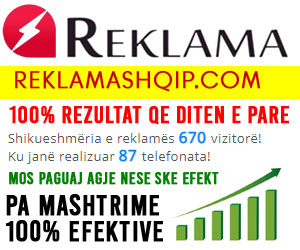Chloe Ayling: ‘The email that made me realise why people doubted my kidnapping’
The model's story was questioned by the public.

To view this video please enable JavaScript, and consider upgrading to a web browser that supports HTML5 video
Up Next
Previous Page Next PageStanding outside the front door of her family home in Croydon, Chloe Ayling got ready to read a statement.
The then-20-year-old had managed to survive being held hostage for six days in Italy, terrified she might never see her family again: ‘I feared for my life, second by second, minute by minute, hour by hour,’ she told the press pack camped outside her doorstep.
It didn’t occur to Choe that what she wore – a white vest and blue shorts – or how she spoke might be forensically dissected by the public. She was just glad to be alive and home.
However it turned out that because the young woman had kept her emotions in check – and even dared to smile, not to mention while wearing blue shorts, god forbid – it was enough for people to decide her whole ordeal must have been a made up hoax.
It also meant that instead of attempting to move on from the most traumatic time of her life, Chloe faced a new battle — convincing people she wasn’t a liar.
‘I can’t believe I’m still talking about this eight years later,’ she tells Metro candidly.
The kidnapping Chloe is sharing her story in a BBC documentary (Picture: BBC)In the summer of 2017, the young glamour model thought she’d been hired for a photo shoot in Milan. However, upon arriving, Chloe was injected with the tranquilliser ketamine by two men in balaclavas, before being driven 120 miles in a car boot to a remote farmhouse.
Although Chloe is mostly able to speak about what happened in a detached manner, she admits it’s difficult for her to talk about when the kidnappers grabbed her from behind as she arrived at the faux shoot. ‘It takes me back to the feeling of not being able to breathe and that panic about suffocating,’ she explains.
Her captor, Lukasz Herba, whom she knew as MD, had been ‘hired by an international crime gang, Black Death’,they told her. The plan was to sell her at a sex slave auction unless a €300,000 ransom was paid by her manager Phil Green, who had set up the shoot. It was money that he didn’t have.
This Is Not Right
On November 25, 2024 Metro launched This Is Not Right, a year-long campaign to address the relentless epidemic of violence against women.
With the help of our partners at Women's Aid, This Is Not Right aims to shine a light on the sheer scale of this national emergency.
You can find more articles here, and if you want to share your story with us, you can send us an email at [email protected].
Read more:
Introducing This Is Not Right: Metro's year-long violence against women campaign Remembering the women killed by men in 2024Chloe was kept handcuffed to a set of drawers and slept on the floor for much of her six days in captivity. ‘I accepted that I was going to die, because there was nothing I could do,’ she remembers. She didn’t cry or scream and the ‘days dragged,’ she adds. ‘I felt like I was constantly walking on eggshells, not wanting to say the wrong thing.’
To view this video please enable JavaScript, and consider upgrading to a web browser that supports HTML5 video
Up Next
Previous Page Next PageA glimmer of hope came when she noticed how Lukasz looked at her. Thinking quickly, Chloe told him that if she were freed, they could be together. He started treating her differently and invited her to sleep in his bed, but they did not have a sexual relationship.
On what would become Chloe’s last day, Lukasz gave her pizza and fruit, and she ate for the first time after previously fearing he was going to poison her. She was then taken shopping for shoes as hers had been taken away.
Her captor then drove Chloe to the UK consulate in Milan and gave her a list of conditions for her release — she must end any investigation and pay the ransom herself.
‘Even though I was out, I didn’t feel safe,’ she remembers, especially as Lukasz had convinced Chloe Black Death could still be after her.
After speaking to police, and it soon transpired that Lukasz, alongside his brother Michał Herba, who worked in computer programming and transport logistics in the UK, were the only people involved. There had been no international crime gang.
Chloe’s account of what happened was in no doubt by the Italian authorities and after a month of investigations, she was allowed to fly home.
Her plan was to keep quiet and get on with her life
‘I was embarrassed by it,’ explains Chloe. I didn’t want anyone to ever know -but that choice was taken away from me.’
Chloe spoke to the press outside her home (Picture: Invicta Kent Media/REX/Shutterstock)What she hadn’t counted on was the reaction to a press conference the Italian authorities held the day before she landed back in the UK.
Not being believedSome struggled to accept aspects of Chloe’s story, such as why she was holding hands with Lukasz while shopping, and how he freed her without police intervention. Quick to spot an opportunity, his lawyer declared the kidnapping was a publicity stunt to benefit Chloe’s career.
‘It was a perfect combination of all the things that made it unbelievable,’ she admits. ‘My job as a glamour model is associated with publicity. How I look and dress, which was normal to me, didn’t go down well. Neither did my calm reactions.
‘It’s expected that when something bad happens, a person must be sad and crying. Cases are more complex than that. Mine certainly was,’ she adds.
‘When I spoke to the press outside my home, I had already been free for a month. I’d just been reunited with family, and I no longer had fear as I knew the Black Death wasn’t after me. It was a happy moment for me.’





